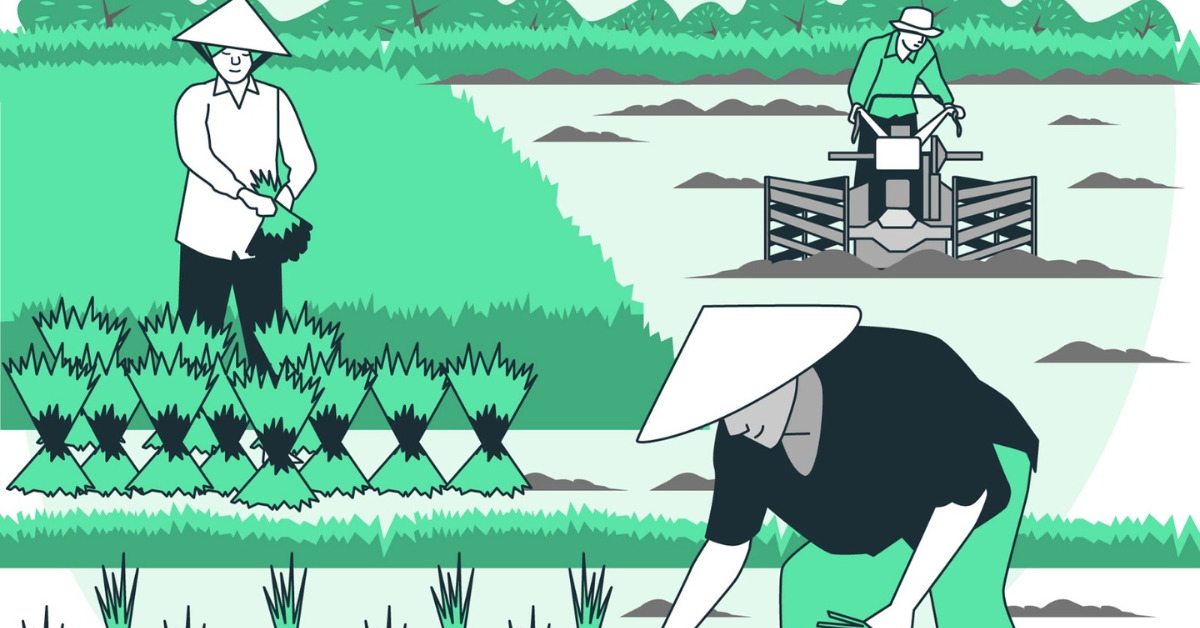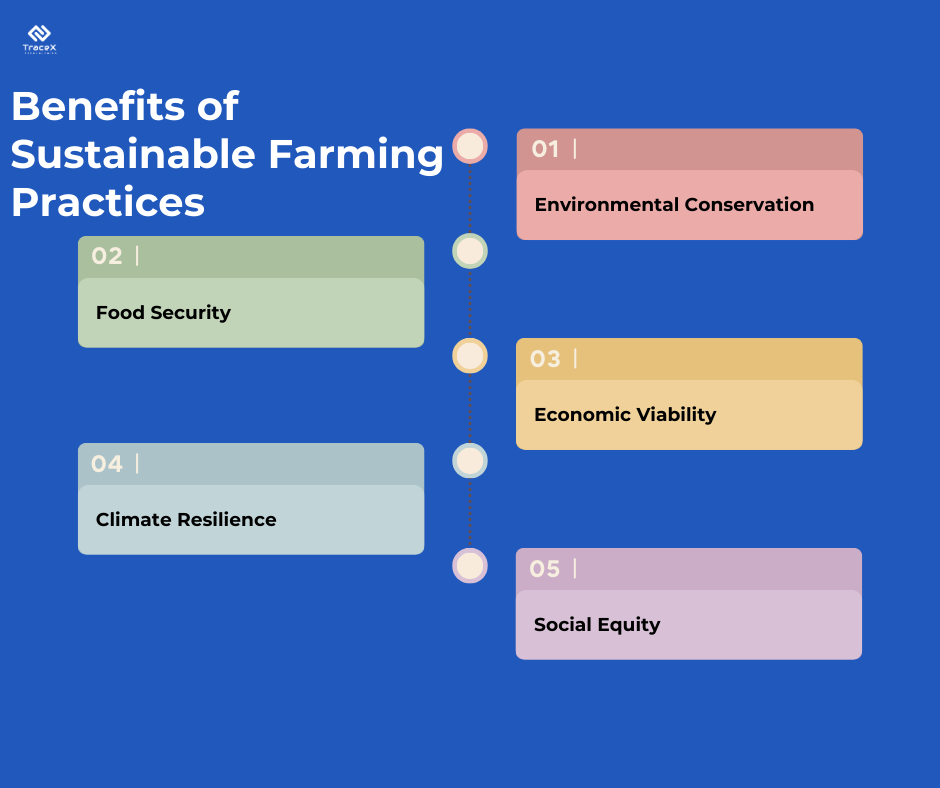Contact: +91 99725 24322 |
Menu
Menu
Quick summary: Explore the transformative journey of sustainable agriculture in Indonesia, where innovative practices empower farmers and foster environmental stewardship. Discover how sustainable farming methods are revolutionizing the Indonesian agricultural landscape for a brighter, more resilient future.

Indonesia, as one of the largest rice producers globally. Indonesia’s agricultural sector is characterized by the dominance of rice cultivation. With over 90% of the population consuming rice as a staple food, the role of rice farming is not just economic but also cultural. Sustainable agriculture in Indonesia is promising a future where rice cultivation forms the backbone of agriculture.
Rice serves as the primary food source for over half of the global population. In Indonesia, it holds significant agricultural importance, with Java contributing to nearly 60% of the nation’s rice output.
Sustainable agriculture practices are vital for ensuring the continued prosperity of Indonesian rice farming. The traditional methods of cultivation, though deeply ingrained in the country’s history, often face challenges related to environmental degradation, economic viability, and social equity. Embracing sustainable practices is not just an environmental gesture; it is a strategic move to safeguard the future of rice farming by preserving the delicate balance between productivity, ecology, and social welfare.

Rice cultivation contributes to greenhouse gas emissions, exacerbated by the traditional practice of burning rice straws post-harvest, which leads to severe air pollution. Additionally, the intensive use of freshwater and chemical inputs in rice production damages soil, water quality, and farmer health.
Sustainable rice cultivation practices are reshaping the landscape of agriculture.
Discover the Future of Rice Farming!
The high-water demand for rice cultivation, estimated to consume 30-40% of global irrigation water, reduces freshwater availability for various purposes, exacerbating water conflicts and environmental degradation.
Small-scale farmers account for up to 90% of Indonesia’s rice production.
However, many of these farmers rely heavily on chemical fertilizers, often subsidized by the government, and lack knowledge of eco-friendly farming practices. This reliance underscores the need for sustainable production methods to meet the rising demand for high-quality rice.
Rice farmers, particularly in Java, face increasing vulnerability to climate change impacts such as droughts, floods, and rising sea levels, threatening their livelihoods. Moreover, reliance on chemical inputs escalates production costs, diminishing profitability and prompting farmers to abandon agriculture for urban migration.
Despite these challenges, the low market price of rice in Central Java discourages farmers from adopting sustainable practices, perpetuating environmental degradation and perpetuating poverty among producers.
Despite its centrality, Indonesian rice farming grapples with multifaceted challenges. Farmers, particularly smallholders, encounter hurdles that span environmental, economic, and social dimensions. Pests and diseases threaten crop yields, unpredictable weather patterns disrupt planting cycles, and market fluctuations impact economic returns. Additionally, social inequities persist, hindering the adoption of sustainable practices and few are listed below in detail.
Amid concerns about the environmental impact of rice cultivation, efforts are underway to ensure that rice production benefits both farmers and the environment. Sustainable farming practices aim to reduce reliance on chemicals, utilize local natural resources, and enhance farmers’ economic prospects. Initiatives also focus on assisting farmers in transitioning to organic rice production and meeting sustainability standards such as the Sustainable Rice Platform (SRP) Standard.
Recognizing the pivotal role of rice farming in the nation’s well-being, the Indonesian government has implemented various initiatives to promote sustainable agriculture. Programs such as the National Movement for Food Resilience and the Sustainable Agriculture Development Program are designed to address the challenges faced by farmers and encourage the adoption of eco-friendly practices.
Government initiatives include providing financial incentives, subsidies, and training programs to encourage farmers to transition towards sustainable practices. These measures aim to alleviate economic burdens, enhance resilience to environmental challenges, and create a conducive environment for the widespread adoption of sustainable farming methods.

The integration of technology in rice farming heralds a new era of precision agriculture. Farmers now have access to innovative tools such as drones, sensors, and satellite imagery that provide real-time data on crop health, soil conditions, and weather patterns. Precision agriculture enables farmers to make informed decisions, optimize resource usage, and reduce environmental impact.
Mobile applications designed for farm management empower farmers with knowledge and decision-making capabilities. These apps provide insights into crop rotation, pest management, and market trends. Data-driven solutions enhance efficiency, reduce resource wastage, and contribute to the overall sustainability of rice farming.
TraceX’s farm management solutions can play a crucial role in empowering Indonesian farmers by providing them with innovative solutions to enhance productivity, sustainability, and overall efficiency in their agricultural practices. Here’s how these tools can benefit Indonesian farmers:
Farm management applications from TraceX can revolutionize the agricultural landscape in Indonesia by providing farmers with the tools they need to enhance productivity, sustainability, and economic viability. The adoption of such technologies can contribute to the overall modernization of the agricultural sector, empowering farmers and fostering a more resilient and prosperous farming community.
Indonesian rice farming stands at a pivotal juncture, poised for transformation and sustainable growth. As a cornerstone of the nation’s cultural and economic identity, the challenges faced by rice farmers have prompted a concerted effort to usher in innovative solutions. The multifaceted approach, encompassing government initiatives, the adoption of technology, sustainable agricultural practices, and community empowerment, paints a promising picture for the future of Indonesian rice farming.
The integration of farm management tools and application signifies a paradigm shift towards precision, transparency, and efficiency. The future prospects of Indonesian rice farming are intertwined with the successful implementation of these initiatives. As technology becomes more accessible, knowledge-sharing platforms proliferate, and climate-smart practices gain prominence, Indonesian rice farmers are poised to overcome challenges and thrive. The journey towards sustainability not only promises economic resilience but also contributes to environmental conservation and social equity.
